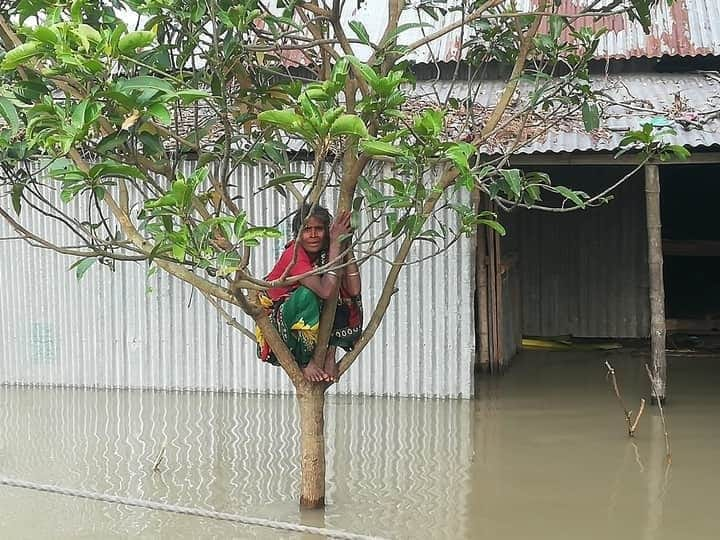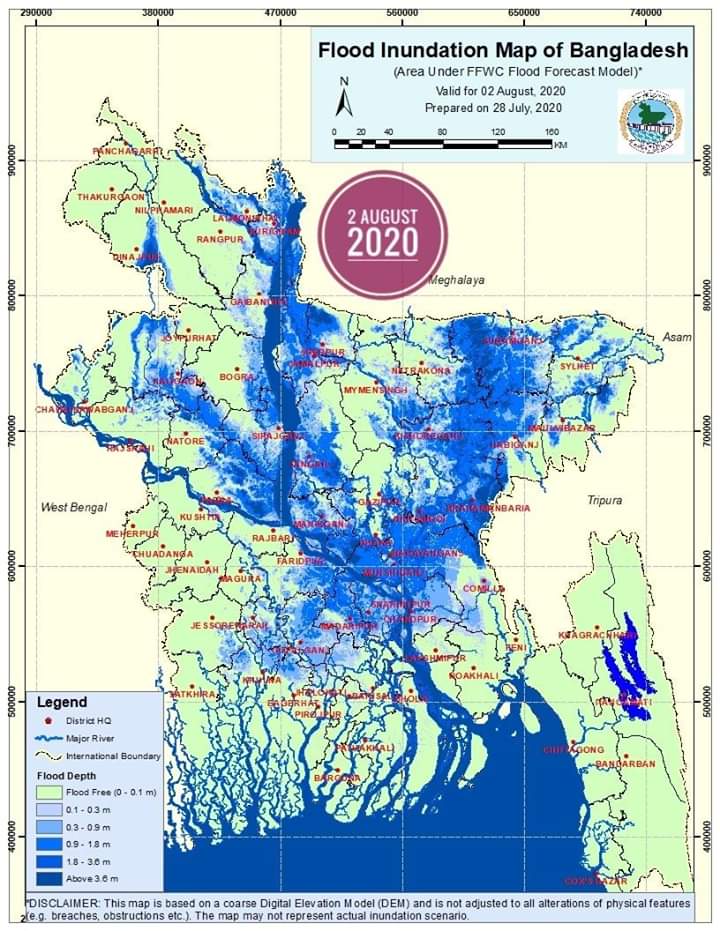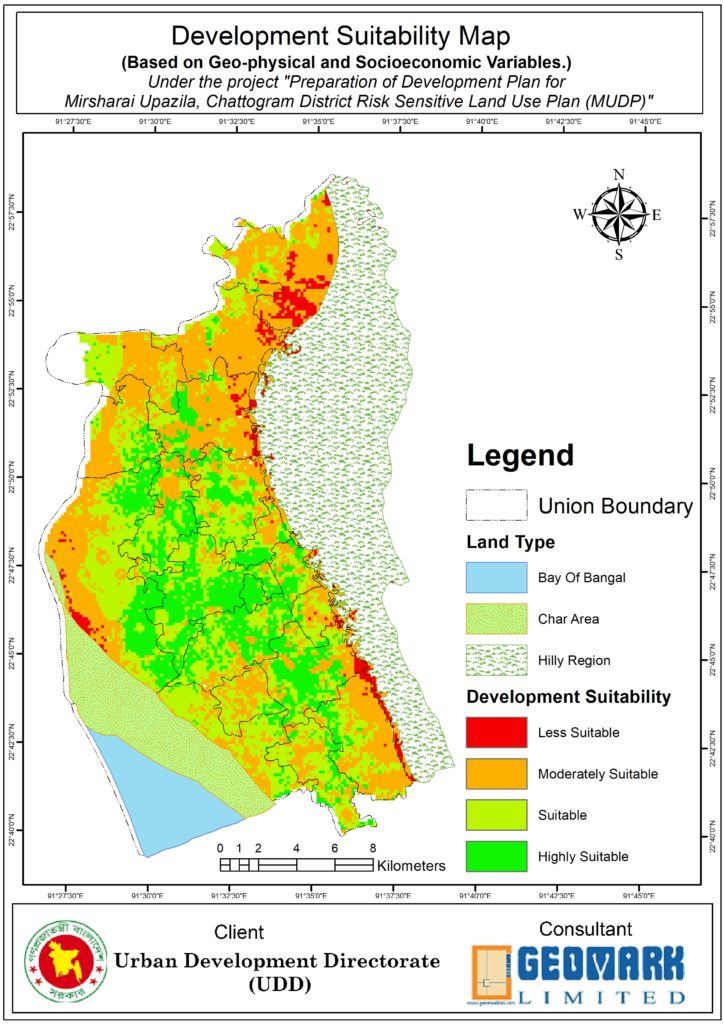As it rained heavily outside, eight-year-old Anm Safiqul Alam Shaheen crouched on the floor of his grandfather’s house to hear his daily tales. Shaheen’s heart was beating rapidly as the story reached its climax, “… then the ghost came out and flooded the entire city of Dhaka. A woman from the village jumped onto a tree to keep her body above the water, tying her hair to the branch in case she lost grip.”
When Shaheen first witnessed a cyclone which wrecked hundreds of houses in his town, he realized that the ghost in his grandfather’s stories was no other than the changing climate change conditions that were slowly wiping his hometown out of the maps. His grandfather’s stories were not fantasy tales, but reality that was becoming more evident overtime.

“We never thought that climate change is an issue, we always thought that it is just a part of our lives,” says Shaheen. Living in a delta zone which is regularly hit by severe cyclones, floods, and droughts means that the environmental crisis is not an external issue for residents but a reality that permeates every aspect of their life.
Driven by his desire to mitigate environmental catastrophes, Shaheen studied geography at University of Dhaka with an emphasis on urban geography and disaster risk management. After he graduated from college, he became a research associate at the Center of Urban Studies in Dhaka where he researched topics ranging from urbanization policy to housing to solid waste management.
After gaining education and experience, Shaheen’s next steps were to find ways to implement changes in his community which led him to founding his own startup: Geomark Ltd. With concerns over the floodings in his region, he wanted to find ways to effectively adapt to that reality. Geomark Ltd. analyses geographic data such as sea level, land use, elevation, and structures using GIS technology to create different types of maps that can aid the government in planning its climate adaptation efforts.
For instance, the vulnerability map highlights houses that are threatened by projected floods or sea level rise which informs the government about where adaptation efforts are critical. Farmers and local communities are also informed of expected conditions so they can better plan their career activities, such as deciding when to and when not to grow crops based on flood projections. By aiding the government and community to adapt to climate change, Geomark helps reduce financial losses incurred by workers, the number of evacuations, and barriers to planning.
Though Shaheen has had the desire to mitigate climate change since he was young, having two children has made him even more driven to work towards building a safer and greener future. Aware of the environmental threats facing Bangladesh, Shaheen shares that “I am anxious about my kids’ future.” However, it is this fear that motivates him to work even harder everyday. Shaheen also makes sure to educate his kids about the climate crises so they are prepared to not only face but also find solutions to the challenges caused by it.
“I think it’s every parent’s responsibility to teach their children about climate change. There are many ways to do this. Personally, I buy educational books about the environmental crisis for my kids to read so that they can understand the foundations of it and teach them by example to be conscious consumers. I have also taken the Global Climate Pledge to have meatless Mondays and my whole family follows this tradition now.”
Despite the challenges that Shaheen and his community face in Bangladesh, there are two things that keep them going: unity and compassion. “In the aftermath of the floods, you often see people helping each other to build back their homes and their livelihoods. There is a true sense of solidarity,” says Shaheen. “Sometimes we do not even think of the floods as something negative or damaging but rather a blessing in disguise as the soil becomes more fertile after”. Bangladeshis teach us that we can always build resilience and find the silver lining during tough times.
This compassion and unity needs to extend beyond the Bangladeshi community to the entire world so that we are stronger together in the face of climate change. It is imperative that, both, developed and developing countries come together to tackle this global issue. While many first world countries may not experience the extreme effects of climate change, the vulnerable countries that lack the resources to cope take the worst hits. When asked about what message Shaheen wants to share with the rest of the world, he said “please listen to our story and help us by doing your part in mitigating climate change.”
After all, climate change is a ghost which is omnipresent, and one day or the other it will come after everyone. An army of climate change vigilantes that spans across borders is required to win this battle.
Anm Safiqul Alam Shaheen is a PhD researcher at Selinus University and member of several organizations including the Curriculum Board, GEOMATICS Department, and Patuakhali Science and Technology University (PSTU).








